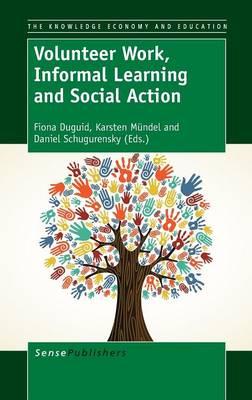Overview
Since most research on work focuses on paid work, and most literature on education concentrates on schools, it is not surprising that studies on the relations between work and learning emphasize the relations between paid employment and organized education. This unique book deals with an area that has been rarely covered in the literature on work and education: the connections between volunteer work and informal learning. Through a variety of examples, ranging from the Red Cross to teacher-labourers, from cooperatives to social housing, and from participatory democracy to environmental social movements, this volume examines the learning dimension of volunteer work in different contexts. It also considers the special case of volunteerism among recent immigrants. The case studies analyze three basic types of voluntary organizations: those providing social services, representing local communities and mobilizing for social change. The chapters include profiles of the actual work their members do and detailed accounts of the learning practices they are engaged in during their work, and the impact of such learning on their personal and professional development. The concluding chapter offers a comparative analysis, practical recommendations and steps for further research.
Full Product Details
Author: Fiona Duguid ,
Karsten Mundel ,
Daniel Schugurensky
Publisher: Brill
Imprint: Brill
Volume: 7
Dimensions:
Width: 15.60cm
, Height: 1.60cm
, Length: 23.40cm
Weight: 0.537kg
ISBN: 9789462092327
ISBN 10: 946209232
Pages: 256
Publication Date: 01 January 2013
Audience:
Professional and scholarly
,
Professional & Vocational
Format: Hardback
Publisher's Status: Active
Availability: Available To Order

We have confirmation that this item is in stock with the supplier. It will be ordered in for you and dispatched immediately.
Reviews
This book provides us with important connections between what volunteers learn and how they learn it, which affords us further insight into unseen motivating factors for volunteerism and most importantly, why volunteers learn in ways that researchers and practitioners have not previously focused on .... Much praise should be paid to the editors for pushing the discourse on how we study volunteers and their motivations, and most importantly what they themselves garner from the process. Furthermore, challenging the hegemony that many discourses on pedagogy have held historically, these scholars have furthered our epistemological consideration of what learning is, and how it helps us challenge our notions of service and action ... I believe this book would be valuable in courses that centre on social transformation or social economy themes. -Canadian Journal of Nonprofit and Social Economy Research (2013, Vol 4, No. 2)




